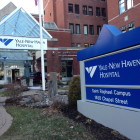I-Team In-Depth
Hospital Mergers Raise Concerns Over Patient Costs
|
Hospital administrators in Connecticut who have been involved in the unprecedented streak of mergers and consolidations often tout the financial benefits and efficiencies of such moves. But as the number of independent hospitals in the state dwindles – with more than half of the 29 acute-care hospitals now operating in networks with other hospitals or out-of-state partners – experts and advocates worry that the consolidations will reduce competition in the market and give hospitals more leverage to raise prices. Adding to their concerns is a proposal by a private company to convert four non-profit hospitals to for-profit entities. Several studies, as well as data from the federal Medicare program, suggest that mergers and for-profit conversions may lead to higher prices. But the state has yet to study the impact of mergers on patient pricing, and has no requirement that hospitals try to hold patient charges steady after a merger or conversion. The state also has no comprehensive blueprint guiding hospital configuration or limiting the number of takeovers or networks it will allow.


